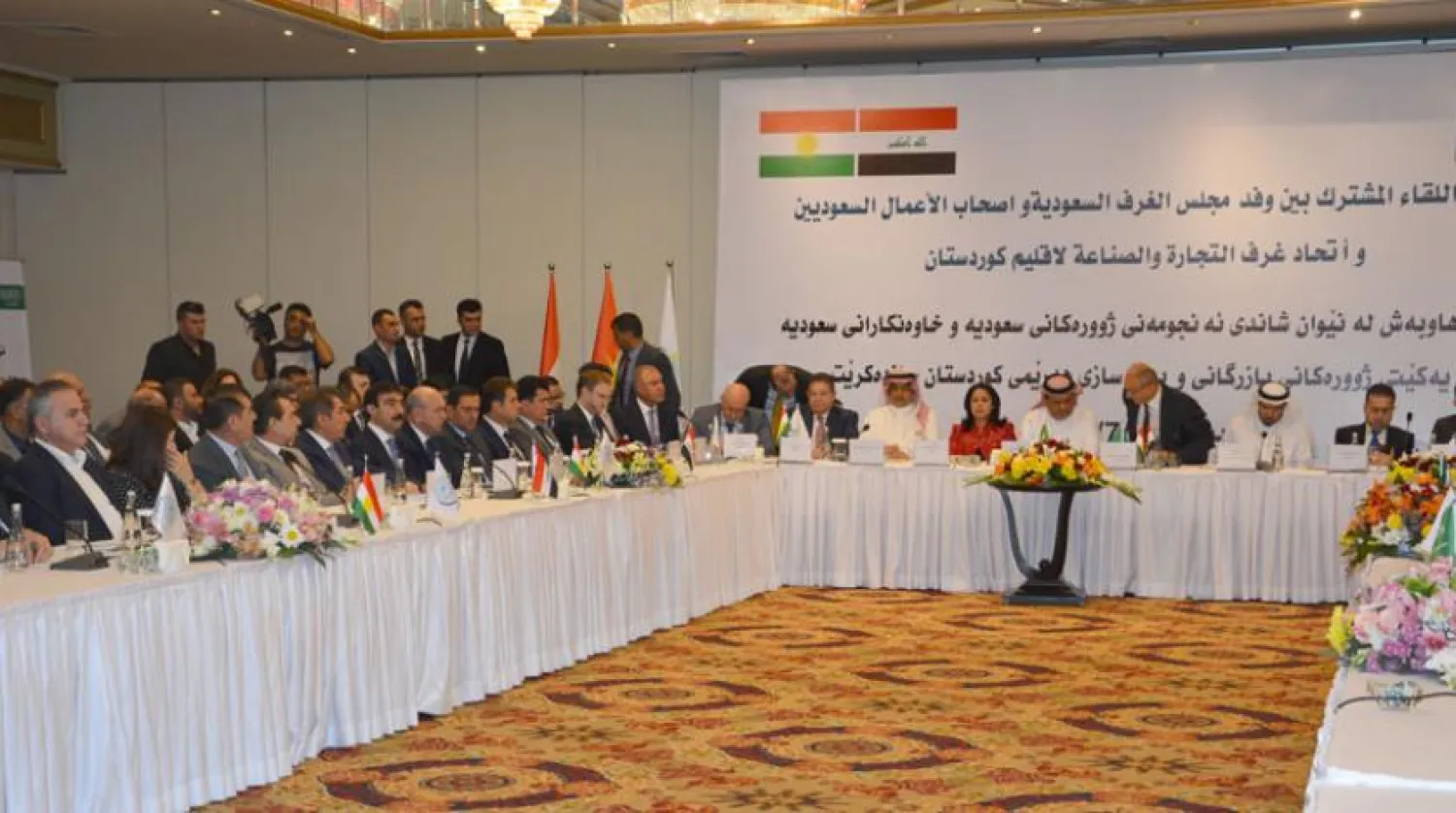A Saudi economic delegation ended its consultations and meetings in Erbil on Tuesday by reaching an agreement with the chairman and members of the Federation of Chambers of Commerce and Industry in the Iraqi Kurdistan Region to form a joint body for economic cooperation.
Sami bin Abdullah al-Obeidi, chairman of the Federation of Saudi Chambers of Commerce, said the meetings focused primarily on ways to expand economic and investment cooperation between the two sides.
“The investment law in Kurdistan provides good opportunities for Saudi businessmen to invest in the region and we are all trying to enable the private sector to play an active role in this field and to form task forces to activate investments in the near future,” he stated.
For his part, Dara Al-Khayat, president of the Federation of Chambers of Commerce and Industry in the Kurdistan Region, stressed that meetings with the Saudi economic delegation represented the first step on the way to enhance economic and trade cooperation between the two sides.
“We have seen a firm desire by the members of the Saudi delegation to implement investment projects in Kurdistan and we hope that this desire would be translated into practical developments in the near future,” Khayyat told Asharq Al-Awsat, noting that the first projects would focus on the fields of agriculture industry and trade.
The Saudi delegation, headed by Saudi Ambassador to Baghdad Abdulaziz Al-Shamri and that included 35 senior Saudi businessmen and investors in various fields, had arrived in Erbil on Monday.









